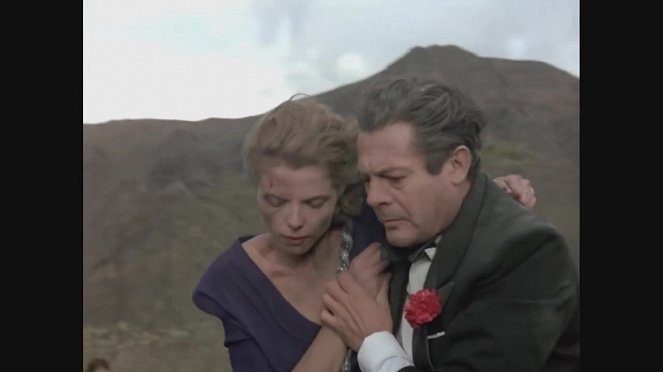Regie:
Liliana CavaniKamera:
Armando NannuzziMusik:
Lalo SchifrinBesetzung:
Marcello Mastroianni, Ken Marshall, Carlo Giuffrè, Jeanne Valérie, Jacques Sernas, Claudia Cardinale, Burt Lancaster, Tomas Arana (mehr)Inhalte(1)
"Es waren die Tage der Pest in Neapel." So beginnt der Chronist der Ereignisse Curzio Malaparte (Marcello Mastroianni) seinen Bericht über die Ereignisse in der süditalienischen Stadt aus dem Jahre 1943. Die deutschen Nationalsozialisten wurden von den Neapolitanern vertrieben, die Alliierten sind gelandet und kämpfen gemeinsam mit den italienischen Widerstandskämpfern. Doch mit den Befreiern verbreitet sich jedoch ein anderes Übel in der Stadt. Neapel mutiert zum absoluten Sündenpfuhl. Es geht jetzt für jeden nur noch um das nackte Überleben. Jeder muss zusehen, wie er seine eigene Haut rettet. Frauen verkaufen ihre Körper für Zigaretten und Brot an die amerikanischen Besatzer, verdienen sich somit quasi als Prostituierte ihre Mahlzeiten, doch sie sind nicht die einzigen, die buchstäblich die eigene Haut zu Markte tragen müssen. Die Männer verspielen ihre Ideale und die Gesellschaft die Chance auf einen würdigen Neubeginn nach den ganzen Kriegswirren. Das Leben manifestiert sich auf grausamste Weise und die Beziehungen der Menschen untereinander reduzieren sich auf ein Minimum. Wozu ist der Mensch bloß fähig? Die Haut ist das schockierende Porträt einer degenerierten Gesellschaft am Ende des 2.Weltkrieges. (Verleiher-Text)
(mehr)Kritiken (1)
If one side of war is represented by the front line with whizzing bullets and artillery fire, then the film actually shows us only the other side. In the first shots, American infantry cautiously advances into the heart of a city, but we are spared street fighting, and the war, as portrayed by American commanders who witness the opportunism and remarkable pragmatism of the local elite, takes on an almost operatic dimension. However, step by step, it becomes apparent that even a war without bombings and bloody massacres exacts its toll. From the highest toll in the case of a minefield to forced child prostitution - it is indeed better to sell one's child's body than to let them die of hunger. Cavani manages to show the absurdity of wartime conditions in a sometimes outright comical manner, reminding me in several moments (such as the theft of the tank and trading with well-fed German prisoners of war) of the novel "How I Won the War." Captain Malaparte is an informed narrator of the story and he has the ideal position from the viewer's perspective. He can interact with all layers of Italian society, from the upper ten thousand to the lost existences on the outskirts of the city. For Mastroianni, the role of an Italian officer with frontline experience was an interesting deviation from the template of intellectual and melancholic characters in Bolognini's films. Overall impression: 90%.
()

